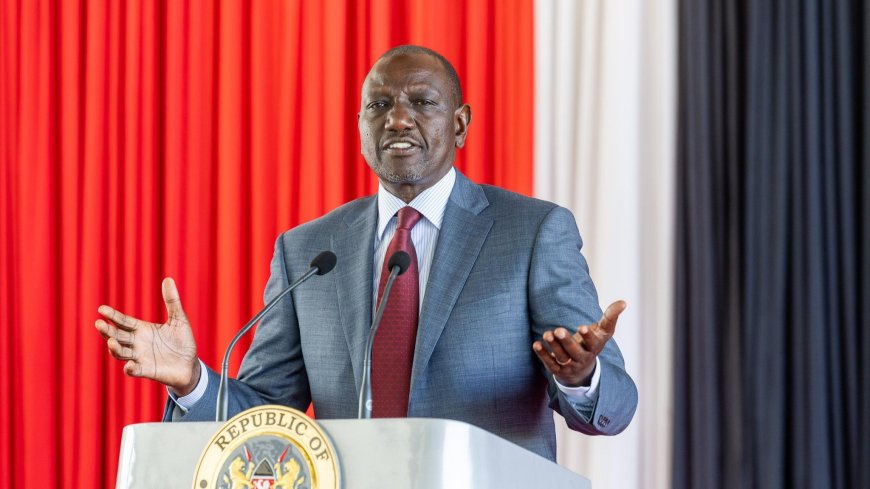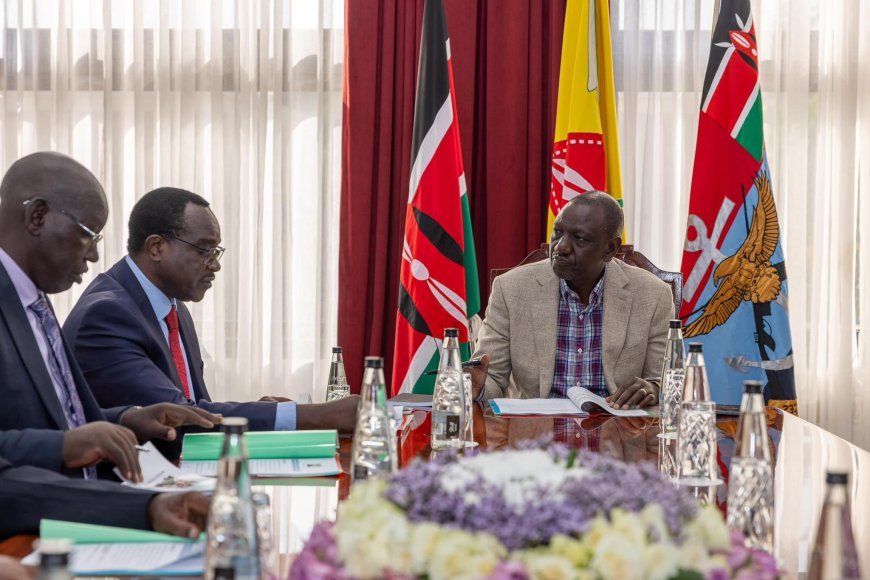Ruto Revives Push For Payment Of School Fees Via eCitizen
Ruto emphasised that moving school fee transactions online is part of the broader push to digitise government services

President William Ruto is not relenting on ensuring that every institution accepts payments through eCitizen, including schools. However, his latest push could see him disregard yet another court order, in this case, which declared the government's directive mandating parents to pay school fees via the eCitizen platform unconstitutional.
While addressing the 3rd National Executive Retreat on Thursday, June 19, President Ruto announced plans to summon all institutional heads who have resisted shifting to the government’s digital platform, suggesting their reluctance stems from having “something to hide.”
He also called on parents to play an active role in enforcing the government's directive by insisting that schools use the digital system for fee payments.
Ruto emphasised that moving school fee transactions online is part of the broader push to digitise government services, a step he believes will significantly boost transparency and accountability across public institutions.
Parents should insist on paying school fees on eCitizen- President Ruto#ViralVideos pic.twitter.com/X6H27rhkVm — Viral Tea Ke (@ViralTeaKe) June 19, 2025
"There are some institutions that still don't want to pay in E-citizen because they have things to hide. There are some institutions that have taken us to court, and we will be engaging with our primary and secondary school heads, who have refused fee payment on statements," Ruto said.
"They still use exercise books to write their receipts, but we want to tell them that the era of transparency is here. Parents should insist on paying on E-citizen. I want to thank schools that have agreed on payment of school fees through the digital platform because they believe in transparency."
While delivering the ruling on Tuesday, April 1, High Court Judge Chacha Mwita emphasised that the government did not conduct public participation before implementing the decision. He also noted that the Ksh50 transaction fee lacks a legal basis.
Additionally, Justice Mwita raised concerns about the lack of transparency regarding who collects the funds and where they are deposited.
"The directive lacks a legal foundation and was issued without public participation. School fees are not government revenue to be collected through a national platform," Justice Mwita ruled.
"High Court has declared the Ministry of Education's directive on payment of school fees via the eCitizen platform irrational, capricious, unconstitutional, null and void. I was representing LSK in this matter," stated lawyer Omochokoro O'mong'oni, who was representing LSK.
The ruling came after conservatory orders issued by the High Court on February 7, 2024 suspended the government directive that all parents and guardians whose learners are in national schools make payments through the eCitizen platform as directed by the Ministry of Education.
A letter addressed to all principals, dated January 31, 2024, by the then-Basic Education Principal Secretary Belio Kipsang revealed that the new form of payment, which was in line with the government's directive to consolidate all platforms through pay bill number 222222, was to begin to take effect on Tuesday, February 6, 2024.
"The directorate of e-Citizen in partnership with the Information Communication Technology Authority (ICTA), Ministry of Information, Communication and the Digital Economy and the National Treasury have been coordinating the onboarding of all government services onto the E-citizen platform to enhance service delivery.
"As part of compliance with the requirements, it is directed that parents/guardians make fee payments for their learners in your institutions through this platform," the letter read in part.
The school heads were therefore asked to provide the respective particulars of their schools to be aligned with the government system. Expected from the principals included the institutions' bank details such as account name, bank, account number, bank code, and branch code.







